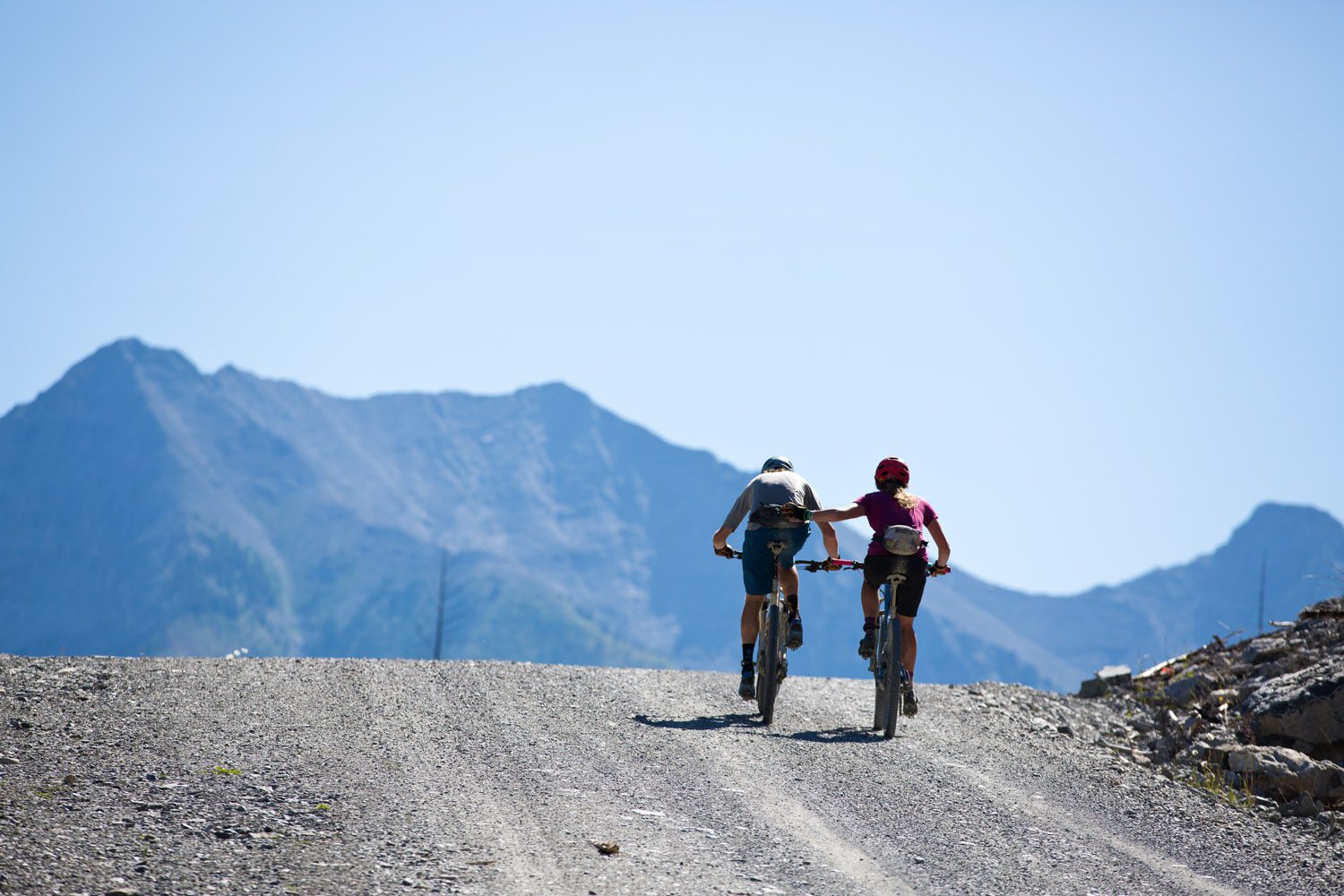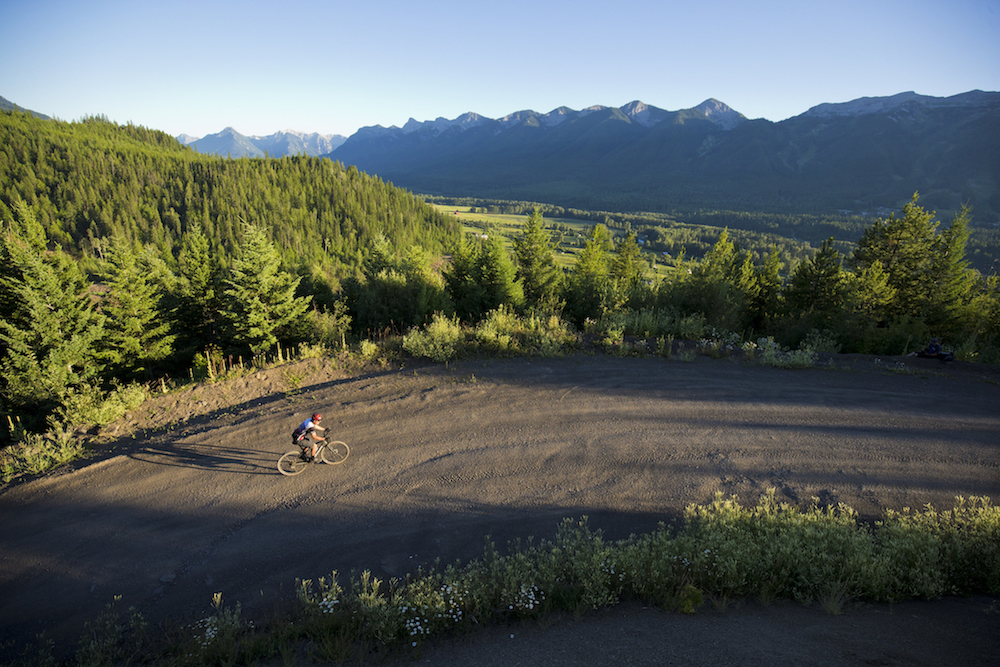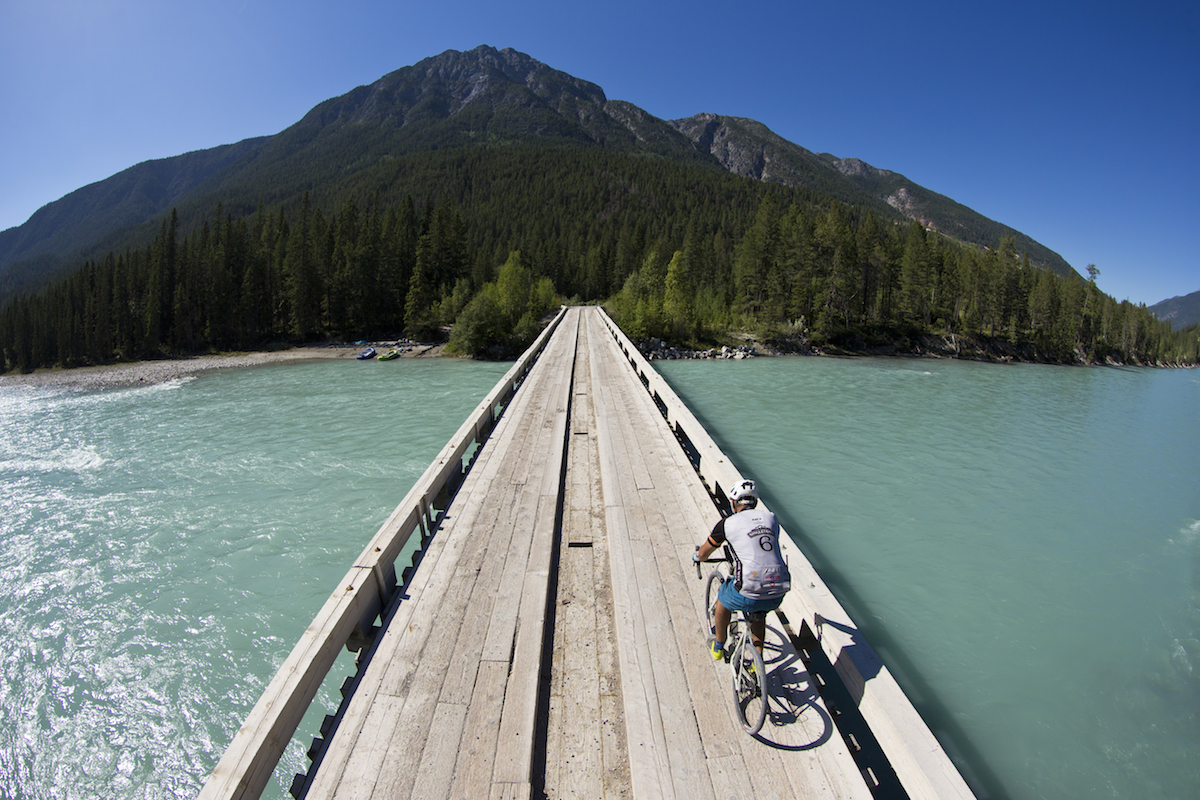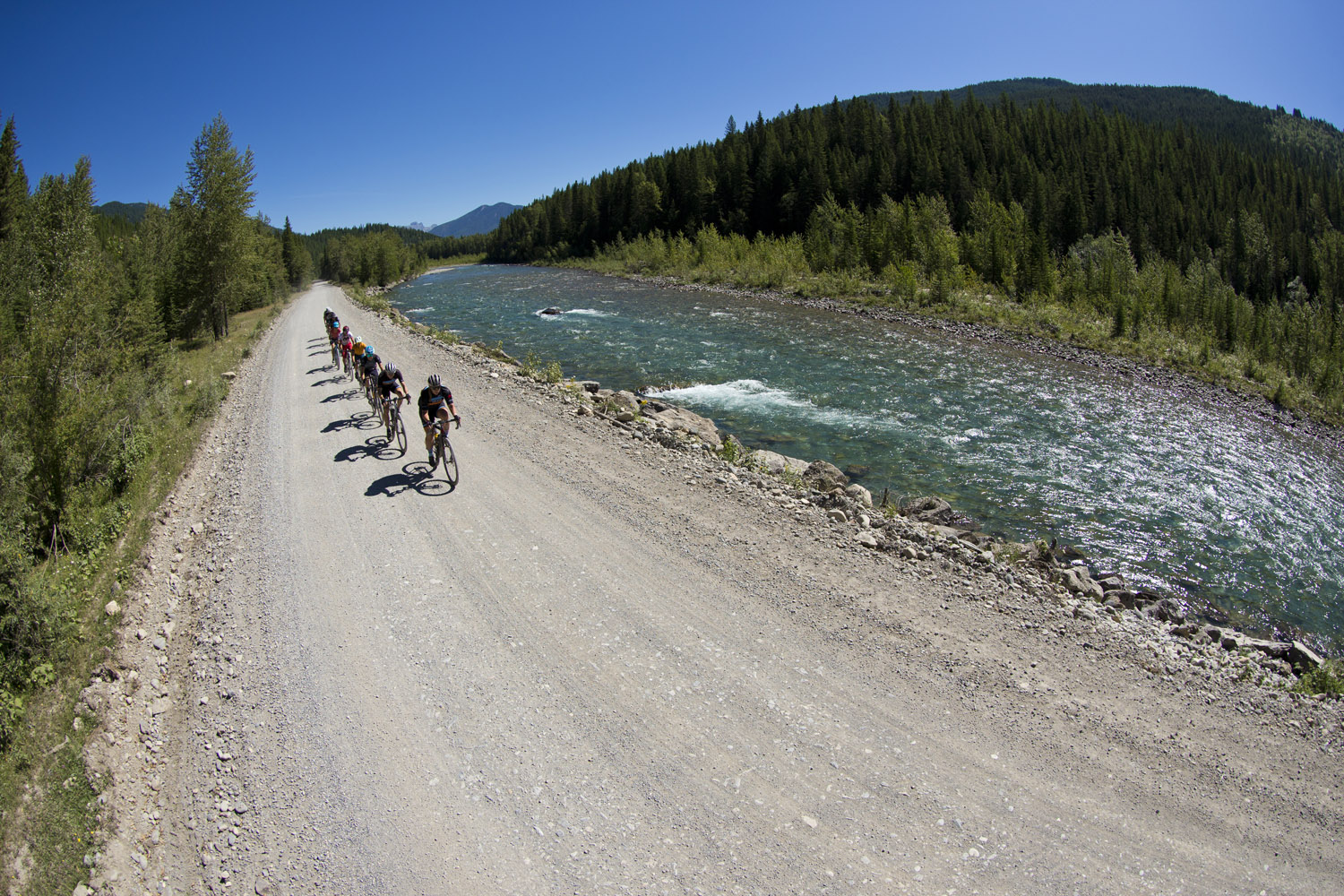TransRockies Gravel Royale forced into late-hour cancellation
Changing health restrictions bring halt to four-day gravel stage race just 48 hours before the start
 Photo by:
John Gibson
Photo by:
John Gibson
Aaronn McConnell was putting the final touches on the inaugural TransRockies Gravel Royale on Friday when he heard the bad news. With COVID cases rising in B.C., the Provincial Health Orders restricting group activities were expanding from the Okanagan to cover all of the interior.
“Our contacts from one of the host communities texted me the news article,” says McConnell. “It was just after 4 o’clock (Friday) . So I wasn’t sure what to think when I saw it. As I read it, I started to realize that we potentially had a problem.”
The changes, limiting outdoor events to no more than 100 people, are set to start on Monday, August 23. For TransRockies 300+ person Gravel Royale, set to start the same day, the change meant making the quick decision to cancel the event just days before the start after over a year of planning.
At this point in the pandemic, race cancellations aren’t new. But getting the news so close to the start of a major event is a big blow for any promoter.
“We obviously understand the reasons for the new restrictions,” says McConnell when I talk to him over the phone on Saturday. “But it is certainly disappointing and frustrating how it’s affecting us in this particular case.”
While still cleaning up from the now-postponed event, McConnell shared just how much goes into planning a four-day event, what the cancellation means for TransRockies, and why he’s already looking forward to bringing the Royale back in 2022.

Wheels already in motion
With just two days remaining before the start of a big, four-day event, the TransRockies crew were well into race mode when the news arrived on Friday afternoon.
“It was a late night last night, and this morning,” McConnell shares. “We had a crew out on course that had already marked most of the course for the first two stages. They were out of cellphone range, so they didn’t find out until they were done. They’ve been back out taking markings down. We’d spent Friday picking up trucks for the event. We would have had those trucks rolling out starting today.”
TransRockies Gravel Royale is four days of racing in remote locations. Racers stay in camp-style mobile tent villages that move between stages. Organizing a few hundred people to safely race between remote peaks for four days is no small feat.
“It’s a lot of logistics. We had two dozen vehicles, a crew of 75 that are directly part of the organization, and it takes a ton of planning,” says McConnell, adding that when it works well, it appears seamless. “I’m not sure everyone realizes all that goes into it.”
I caught up with McConnell less than 24-hours after he heard the news that would force him to cancel the event. For someone that’s just put over a year of planning into an event that now won’t happen, he sounds tired but impressively positive. He’s already looking forward to Gravel Royale 2022.
“It was supposed to be the first year of the race, so we were quite keen to get the first year of the event off and show everyone a great time. So hopefully its really just a delay of a year until we can actually do that. People seem to know were still planning to operate the event next year and there’s still lots of excitement about it. We’re still really optimistic about the long term future of the event. It’s such a great area for gravel riding and it’ll be such a great experience. We’re just looking forward to showing it off.”

Roller coaster route to the Rockies
For the Gravel Royale, it’s a tough postponement after a challenging year of race planning. An optimistic start to 2021 was followed by B.C.’s third wave of the pandemic, but picked up again with the arrival of vaccines. “After that we were waiting and waiting on restart plans. We didn’t have the full go-ahead until basically July 1st,” says McConnell. “We’ve been on super tight timelines since then. It’s been more compressed than usual, but everything was getting done.”
Even heavy smoke from B.C.’s wildfires has cleared out less than a week before the race. The event was looking good to go ahead. Then came the changed health orders.
“This wasn’t really on our radar, that there could be a change in event restrictions. It wasn’t something that could happen at this point, on such short notice especially,” adds the TransRockies president. “So that’s the hardest part about it, really, that people were already travelling and that we already had vehicles and lots of sunk costs.”
With the news still fresh, the team is still working out what exactly the financial implications will be. Trucks are already rented, suppliers already have purchased things like food and other supplies. Others, TransRockies are hoping to recover. Race entries will be automatically deferred to 2022, which should make for a big field when the Gravel Royale finally does roll out in 2022.
For McConnell, who also overseas TransRockies other cycling and trail running events around the continent, the difficulty of tracking and organizing around numerous, changing and differing health and travel restrictions has added to the stress of race planning.
“It’s been really tough. Our Alberta events are late June and early July, so we had to cancel them before things opened up in Alberta. In the U.S. we had our TransRockies run quite successfully a few weeks ago. We’ve been requiring people to show proof of vaccination or negative PCR, which has been successful. Most people there were vaccinated, so people felt quite safe.”
Now he’s looking head to the event series’ next two B.C. events and Moab Rocks, in Utah. “We’re hopeful Moab Rocks works, but there’s border restrictions and health restrictions in the U.S. are also changing.”
“It’s definitely not something we’ve ever had to deal with. it’s just all kinds of uncertainty.”

Riders re-route at the last minute
A late cancellation has a huge impact on an event organizer, but they’re not the only ones affected. With the four-day event starting on a Monday, many were already on route to Panorama by Friday afternoon, hoping to enjoy the weekend in the mountains before racing started
For Matt Hornland, the news arrived while he was driving a van filled with 1,800 cans of beer somewhere between Vancouver and Invermere. The Easton Overland team manager had volunteered to bring the special delivery when TransRockies’ supplier had decided not to travel due to wildfires (the previous weekend had seen several temporary highway closures). Along with the precious cargo, Hornland was also organizing his athletes from across North America to get to the event.
The recently re-opened border means Hornland’s Easton Overland athletes could attend, but with extra planning. While several had started their journey none had managed to get into Canada yet.
“Amity Rockwell’s in Wyoming, Matt Lioto was supposed to start his trip last night. Everyone started messaging around 7PM,” says Hornland, who was coordinating the teams travel. “It just one of those ‘now what’ questions.”
Over a year into the pandemic, race cancellations aren’t new. Even when the reasons are clear, losing all the work that goes into planning – and just missing out on the fun of racing – still stings.
“It’s hard to explain this disappointment,” says Hornand, adding that health is absolutely a priority, and that he’s not blaming organizers. “I understand where TransRockies are at – they’re stuck. It’s not their decision. The hard part is, for us, knowing the athletes could have been at other events. Michael van den Ham was looking at Grinduro Canada, Montana has the Last Best Ride and there’s Gravel Worlds this weekend.”
Easton Overland was committed to TransRockies Gravel Royale, as a team and as a sponsor, because it offers an atmosphere that’s not a standard event.
“Having racers there at the pointy end of events is part of it, but we’re also interested in being there for the vibe as races where we can mix in with everyone,” Hornland explains, saying the camp-style event offers a different appeal to results-focused races. “‘Having a good time in the hard time’ is kind of our thing.”
While organizing athletes from all over the continent is time consuming, and ever more so with changing health and travel restrictions, Hornland is quick to point out that its easier for the pros, since its their main job. For others, getting to the finish line in Fernie meant taking time off work, organizing life, kids, vacation and travel.
“I think about that in the context of what we care about the most in gravel – the participants,” says Hornland. “If this is hard when you’re a professional athlete, think about how hard it is if you’re someone with a full time job, trying to balance kids.”
On Monday, he’ll be back at the office, like McConnell, working out what the team’s next events are. Cancelled races may not be easy, for organizers or riders, but when they happen, they’re always worth the effort.
